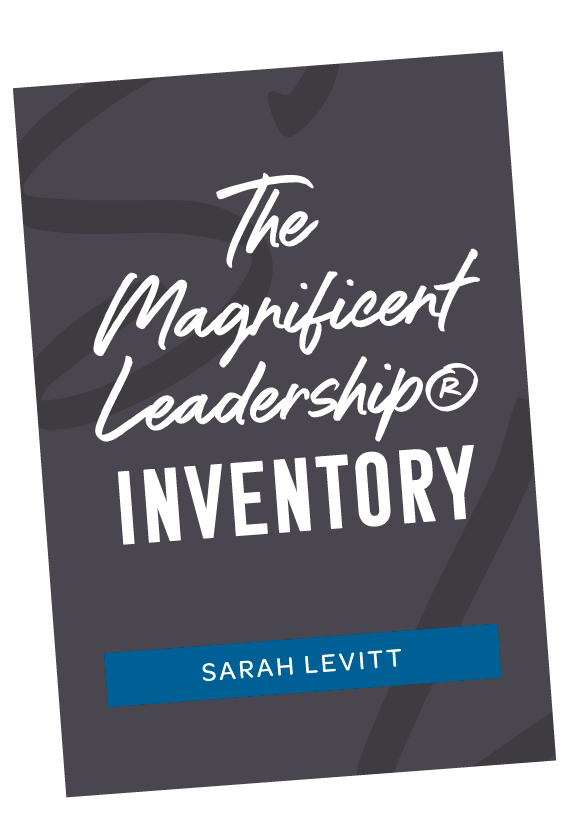You have my attention.
(Settle in peeps, this one’s a bit longer than usual.)
Three times last week, all with separate clients, all in different industries, I heard the exact same words, unsolicited:
“I’m burned out.”
To begin, let’s talk context.
Pandemic. For more than 2 years.
Which upended every aspect of your life, including how you were leading.
With the pandemic came loads of uncertainty, the most uncomfortable state for us to exist in.
And real worry over your children’s development.
And the strain of having a marriage in one space, 24×7.
And, for a prolonged period of time, wondering if death were, quite literally, imminent.
That was part one, which is not yet complete.
Then came the business explosion.
Which continues to demand more – at a continually faster pace – from you and your teams.
Then the talent market became tighter than it has in a long time, pulling some of your best people to other organizations, or, at the very least, keeping you on your tippy tiptoes with concerns over retention and poaching. Not to mention creating gaps on your teams, thereby pushing and overloading them – and you — even more.
Throw in supply chain issues.
Add to that a war in Europe.
And headlines here at home ranging from inflation to interest rates to mass shootings to giant Supreme Court decisions.
No wonder you’re a bit weary.
A lot weary.
Beyond crispy.
As one member of the Executive Forum said last week, a vacation isn’t the answer to this.
No, it’s not.
But, take your vacations.
How do you sustain – much less attempt to reinvigorate – yourself? So that you can actually be living through this rather than just enduring it?
Here’s what I’m talking to clients about, which is also what I talk to myself about:
First, acknowledge that you’re running a different kind of race, one that you have never run before. Let’s call it an ultramarathon. In a cold, unrelenting rain.
Next, begin to think about what you need – what is required – for you, in your life, to cross this kind of distance, under these kinds of conditions, keeping an eye toward what you want to get from the experience — how you will find meaning, what you will make of it, how you want to have spent your time and be shaped – however long it takes.
Then, you get real. You make a list: What are the activities, experiences, and people that bring you feelings of joy, contentment, fulfillment, peace, calm, connection, engagement, and enlivenment – as examples – and that replenish, rejuvenate, and nourish your soul?
Choose a minimum of 3 from that list and experiment with incorporating them into your daily/weekly life.
Yes, I am serious.
Give it a few weeks. Get creative and think about ways to combine your favorite people with your favorite activities, as an example. Tune in. To you.
Small subset of client examples: morning walk, time with the dogs, playing an instrument, nature walk with the family (research shows that time in nature works wonders for us), skating at the rink, mountain biking, running, meditation, pickleball, journaling, connecting regularly with closest friends, reading, just about any time spent outdoors, listening to music, cooking, being exposed to new ideas/learning.
After you’ve got your 3, make them non-negotiable.
With yourself.
Create a visual cue so you’ll be reminded and nudged.
Calendar them.
And then listen for the voice inside that tells you that there’s too much to do, that you can’t take the time. It might be loud, it might be well-practiced, but rarely is that voice true. But that’s who we most often negotiate with.
As part of your ultramarathon plan, include finding a safe, trusted, and confidential space where you can show up raw and real and tired and share your experience. That might be a therapist’s office, a peer group, a faith-based leader, a coach, or a combination of the above.
Leaders, you are carrying a lot of weight these days.
And, you know I’m going to say it: Include the fundamentals of good food, water, sleep, and movement.
I know, I know.
But they seem to make a difference.
I could also mention techniques for successfully (mostly) unplugging during vacations. Or creating some rest and parameters around tech use. Or monitoring the quality and quantity of information you’re taking in and how often. Or ways for framing and thinking about this time as something more than to be endured. Those are worth talking about, for sure.
But start with your non-negotiable list.




 Are you elevating your leadership as your business grows?
Are you elevating your leadership as your business grows?